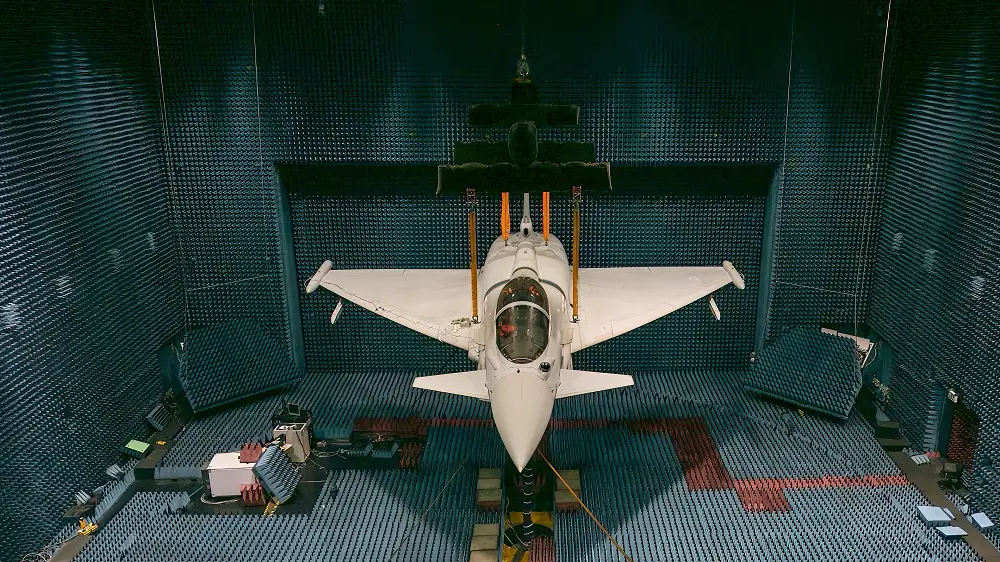BAE Systems has received a prototype ECRS Mk2 (European Common Radar System Mk2) from Leonardo, marking the latest milestone in the ongoing development programme for the UK Typhoon fleet. The radar will now undergo integration work and ground-based testing in preparation for its first flight tests on-board the Eurofighter Typhoon next year. This will take place at BAE Systems’ flight testing facility in Lancashire, United Kingdom. The ECRS Mk2 features an innovative multi-functional array (MFA) that can perform both traditional radar functions such as search and targeting, as well as electronic warfare tasks. This means that Eurofighter Typhoon will be able to locate and deny use of an adversary’s radar with a powerful electronic jamming attack, whilst staying beyond the reach of threats. The overall Typhoon programme supports more than 20,000 highly-skilled jobs across the UK. The work developing the ECRS Mk2 is securing 600 roles including more than 300 at Leonardo’s site in Edinburgh, 100 in Luton and 120 at BAE Systems in Lancashire. With the new radar and a wider package of enhancements for Typhoon being funded by the UK MOD, the combined programme is expected to sustain up to 1,300 jobs in the UK.
“The ECRS Mk2 radar is one of a number of key capabilities which we are integrating to secure Typhoon’s as the backbone of air defence across the globe for decades to come. Together with enhanced mission systems, advanced sensors, weapons and displays, we are delivering a sovereign capability which will keep RAF pilots safe and ensure the UK has the skills to continue to mature key technologies which support its future combat air ambitions,” Richard Hamilton, Typhoon Programme Director, Europe – BAE Systems Air said.

“The ECRS Mk2 will equip RAF pilots with the ability to locate, identify and suppress enemy air defences, a powerful combination of capabilities that will increase the Eurofighter Typhoon’s lethality and survivability, and the survivability of other friendly forces,” Mark Stead, SVP Radar & Advanced Targeting, Leonardo UK said.
The new radar is eagerly anticipated as it will further enhance the superb capabilities of Typhoon and keep it at the leading edge of combat air for years to come,” Group Captain Matthew D’Aubyn, Air Capability Typhoon Programme Director, UK Ministry of Defence said.
With a view to potential future adoption of the ECRS Mk2, Leonardo in Italy is also contributing to the development, with engineers from Leonardo’s Nerviano, Milan-based radar site having joined the team in Edinburgh. As a step towards Italy’s full participation in the ECRS Mk2 programme, this collaboration will enable acquiring system design capabilities that will ensure that the Italian MOD has sovereign control over the new radar system at every stage of its operational life. In addition to their partnership to deliver the ECRS Mk2, Leonardo UK and BAE Systems are also core members of the UK’s team to deliver the Global Combat Air Programme (GCAP), a partnership between the UK, Italy and Japan which will bring a sixth generation combat aircraft into service in 2035. The firms’ involvement in both programmes will create opportunities to develop technology and skills from the ECRS Mk2 into the GCAP platform’s suite of advanced electronics, and vice versa, de-risking and accelerating both programmes.















